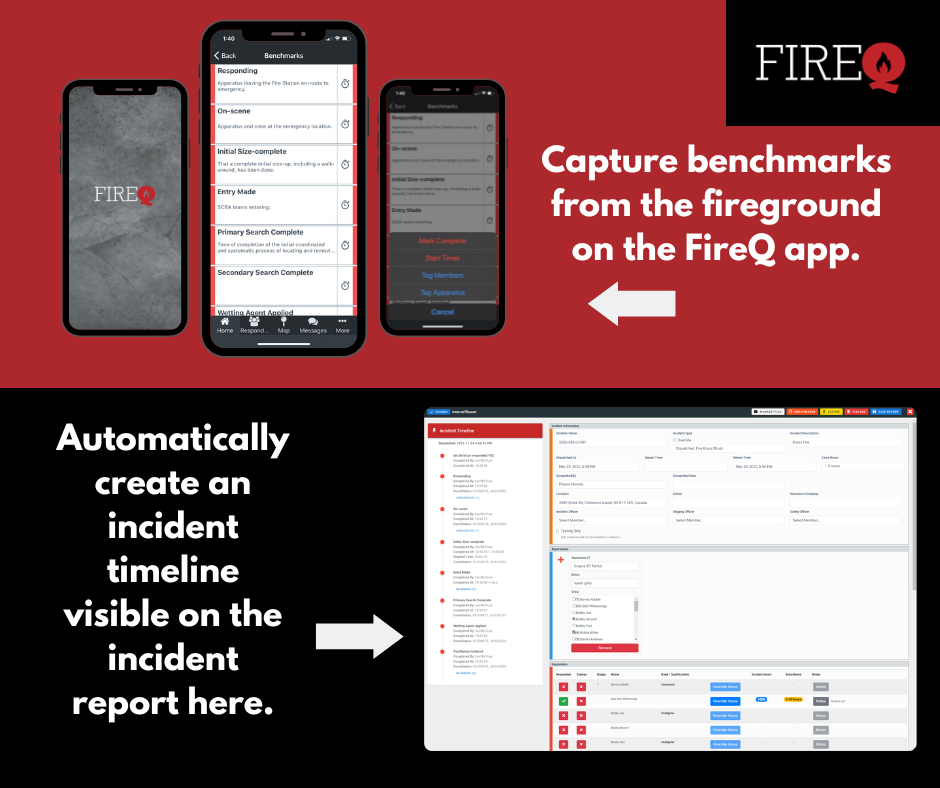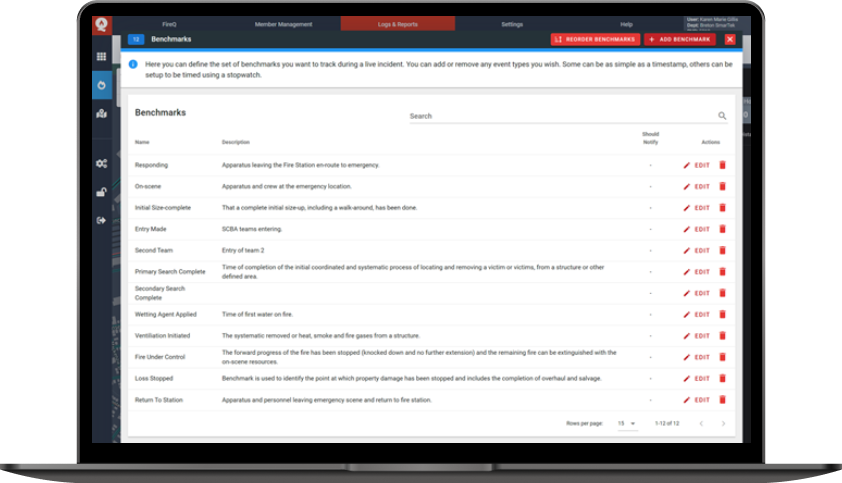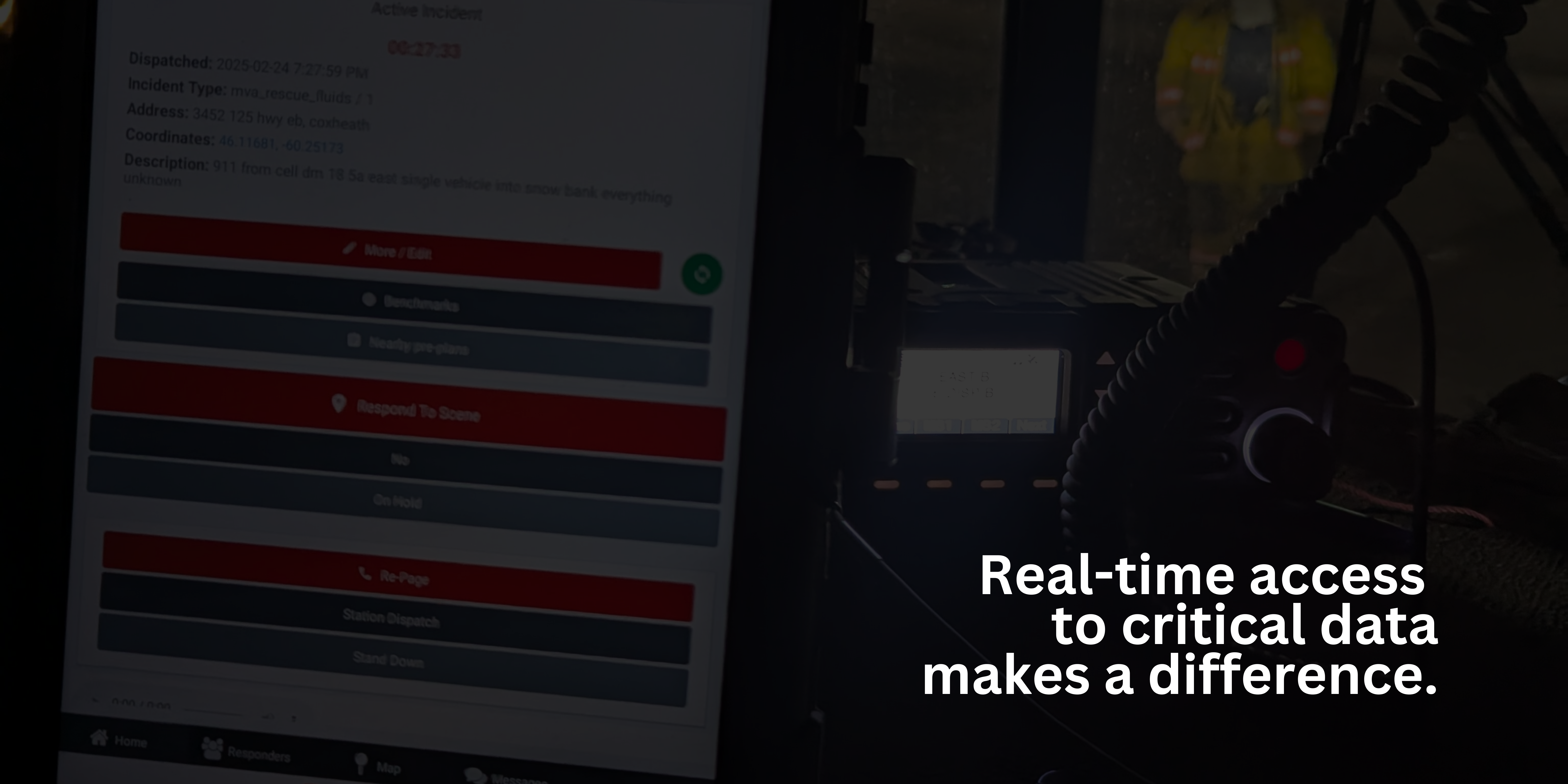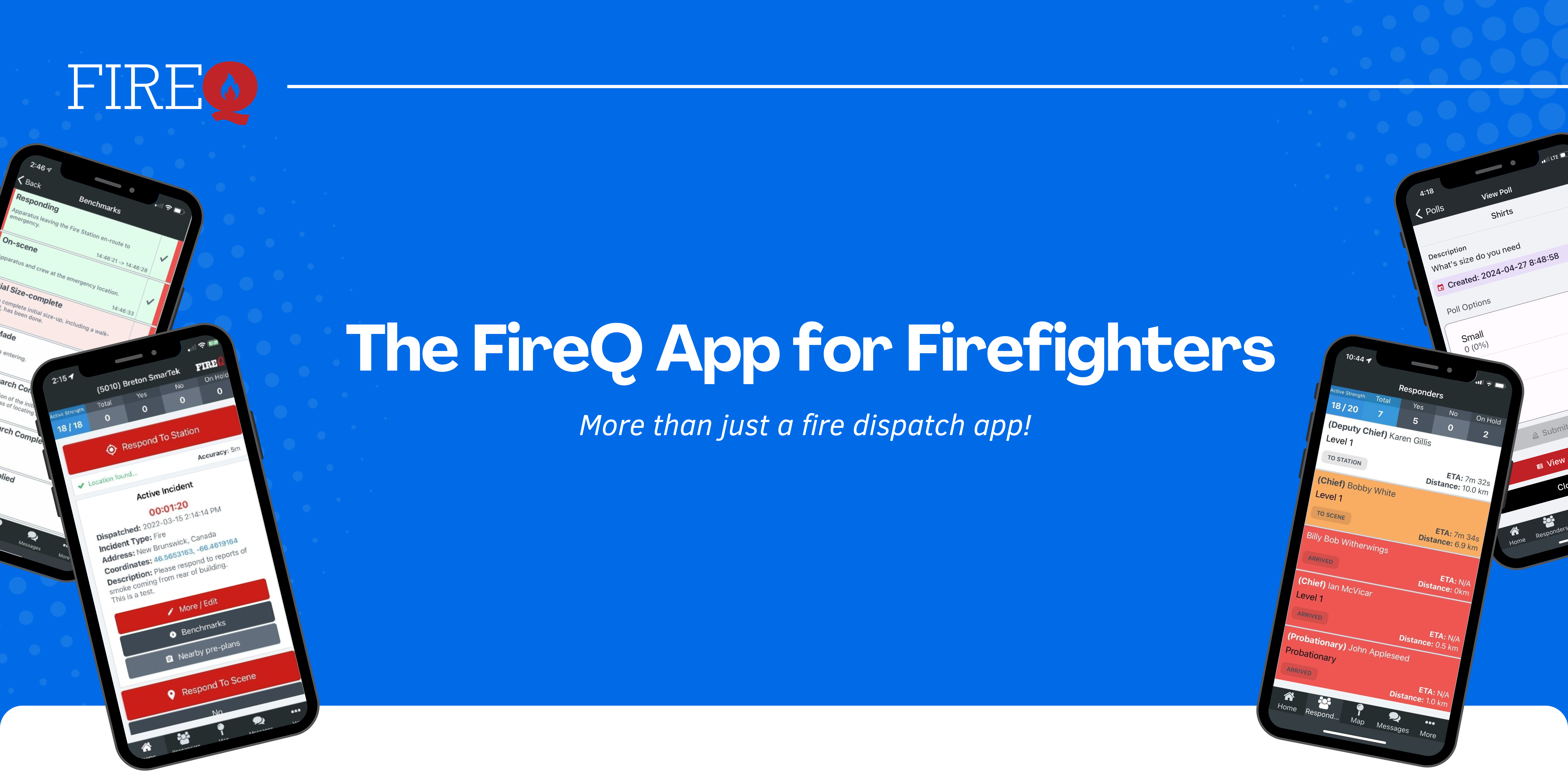The philosopher Francis Bacon told us that ‘knowledge is power’. This is especially true for firefighters where success and failure is often measured in seconds. FireQ Benchmarking helps fire departments capture data quickly and easily so they can measure what matters.
The fire service needs benchmarking. Because firefighters do dangerous work, most have been in situations that can and do become uncontrollable. Knowing how long it takes them to arrive on scene, or how long it takes to get a wetting agent applied, or how long firefighters have been in a burning building is critical.
More importantly, this data needs to be available to the Fire Chief…the guy responsible for ensuring that firefighters are as prepared as they can be for situations that can go from controlled to dangerous.
FireQ Benchmarks let fire departments capture the data that matters to the running of their department.

How FireQ Benchmarks Work
FireQ benchmarks helps firefighters to measure the things that matter on the fireground. Firefighters time-date stamp important milestones of an emergency response, as well as include which firefighters and which apparatus participated in each task. More importantly, it is done in three simple steps:
- During an active incident, a benchmark button is available on the home screen of the FireQ app.
- A complete list of the benchmarks is visible to all firefighters.
- Firefighters with the appropriate permissions, tap the benchmark to start a timer, mark the task complete, or tag specific apparatus and firefighter.
Some of the most common benchmarks are included in each FireQ system. Fire departments, however, can also add their own custom benchmarks and create their own metrics to measure their own goals.
Most importantly, captured benchmarks are automatically included in the FireQ incident report.

How Fire Chiefs are Using FireQ Benchmarks
Benchmarks are powerful tools. A Fire Chief, for example, can measure the response time of his department in getting to the scene to ensure that they are arriving in 9-14 minutes (depending on urban or rural location) 90% of the time. She or he can also measure how long it takes to safely commence an initial attack, to ensure that it is done within 2 minutes 90% of the time. With access to accurate performance data, a Training Officer can tailor training to when department goals are not being met.
Standard operating procedure for most departments requires that an incident commander should be assigned to each emergency scene and that the incident commander is responsible for coordinating and managing everything that happens on the scene. FireQ Benchmarks are used to create department checklists of how the scene should be managed. This ensures that each scene is handled the same way, using the same criteria, regardless of who has been appointed incident commander. Benchmarks also provide incident commanders with timers for such things as when a team of firefighters makes entry to a burning building, letting them track the time remaining on air tanks.
Beyond assisting with performance analysis, FireQ benchmarks provide important information when a fire investigation is needed. Most Fire Chiefs have, at some point, been involved in an emergency that resulted in the involvement of an insurance company or an investigative entity. With FireQ Benchmarks, firefighters can capture time-date stamps for:
- when the fire department arrived on scene.
- when the initial size-up was completed.
- when a wetting agent was first applied.
- when firefighters made first entry.
- when the fire was knocked down.
In the days and weeks following an emergency, investigators are empowered by fire departments that have captured the important data.
Why Fire Chiefs are Using FireQ Benchmarks
Benchmarks help firefighters, and the fire departments they serve, to critically review their own performance. Post-incident analysis with the department membership allows firefighters to see what went well and what did not. Each activity on the fire scene can be broken down and examined by the people involved, giving firefighters a way to measure their own success by more than how much or how little people are complaining.
Regardless of the reasons, relevant fire department data in the hands of the Fire Chief is used to set department goals and measure progress. With that data, fire departments review their own performance and measure their own success.
FireQ benchmarks help fire departments capture data and measure the things that matter.



